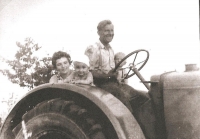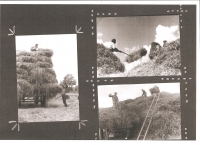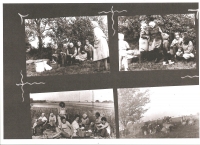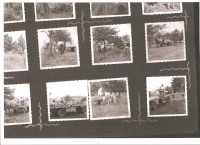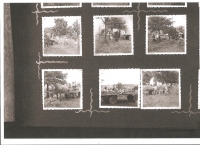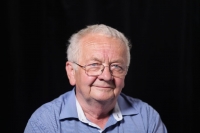Farming is handed down from generation to generation in our family

Download image
Jiří Netík was born on 6 April 1950 in Pelhřimov. He grew up in a family of farmers as the youngest child from five children. His father Rudolf Netík was imprisoned from political reason in the 1950s and even after it he refused to join the united agricultural cooperative. He was used to helping in the family farm since he was a child. He studied at the Secondary School of Agriculture and Mechanisation in České Budějovice. Even though he got admitted to a university without entrance exams, he decided to dedicate fully to farming. He took the farm in Týn nad Vltavou over from his dad even though according to the custom the oldest son usually stayed. He joined the Czechoslovak People’s Party. In 1989 Jiří Netík as a Catholic went on a pilgrimage to Rome on the occasion of canonization of Agnes of Bohemia and he got involved in the Velvet Revolution. After the fall of communism, Jiří Netík tried to unify private farmers, he founded the Agricultural Chamber of the Czech Republic and was its first chairman. He was also a member of Association of Private Farming of the Czech Republic and he was a chairman of Rural, Farming and Environmental Committee of the South Bohemian Region. He was a member of nineteen associations in total. He was South Bohemian Regional Councillor for Agriculture, Environment and Rural Development for the Christian and Democratic Union – Czechoslovak People’s Party from 2004 to 2008 and he was a regional councillor until 2012. Nowadays (2020), he is an active member of eight associations and he has handed the farm in Týn nad Vltavou over to his son. However, he still participates in its running.
